All-Ireland Cancer Network (AllCaN) Programme - Oesophageal Cancer
The first Breakthrough Cancer Research All-Ireland Cancer Network (AllCaN) programme grant is focused on Oesophageal Cancer research

The AllCaN Grant Programme was created as part of Breakthrough Cancer Research’s new 5-year research strategy (Making More Survivors), to support and facilitate knowledge sharing between exemplary teams in institutions across the island of Ireland, who are taking on less survivable cancers.
Oesophageal Cancer is one of the biggest cancer challenges with a 5-year survival rate of just 24% in the Republic of Ireland (NCRI) – only 1 out of every 4 people diagnosed will survive 5 years. In Northern Ireland, the survival rate is less at 19% (NICR). Northern Europe, and specifically the UK and Ireland, are where some of the highest incidence rates of oesophageal adenocarcinoma (OAC) are reported.
The AllCaN – Oesophageal Programme grant was awarded to an all-Ireland network led by Prof. Jacintha O’Sullivan (Trinity St. James’s Cancer Institute, TSJCI), and co-led by Prof. Helen Coleman (Queen’s University Belfast) and Prof. Juliette Hussey (TSJCI). The collaboration links six major academic institutions across the island of Ireland – Trinity College Dublin, Queen’s University Belfast, University College Cork, Royal College of Surgeons in Ireland, University College Dublin, and University of Galway – along with their associated hospitals, the National Cancer Control Programme and the Belfast Health and Social Care Trust.
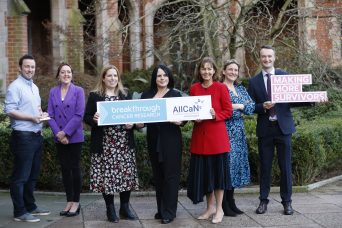
The first of these AllCaN Grants, AllCaN – oesophageal cancer, which is funding innovative research to understand cancer development, improve early detection and outcomes for patients with, or at risk of, developing the disease was launched on World Cancer Day, February 4th, 2023 in QUB, Breakthrough is investing €1 million into the AllCaN – Oesophageal Programme grant (2023-2027) with additional collaborative funding and support coming from CROSS and the Oesophageal Cancer Fund.
This unique cross-border collaboration will enable the sharing of data and learnings for the first time. They share decades of collective experience in Oesophageal
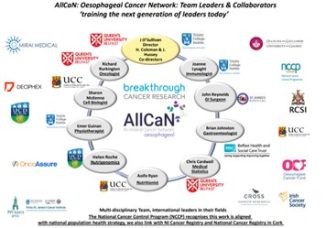
Identification of, and improved treatments for people with Oesophageal Cancer and Barrett’s oesophagus, could significantly control the progression of the disease.
With AllCaN, it will be possible to identify if potential inequalities exist across demographics, healthcare systems and patient outcomes and how lifestyle factors and medications influence reflux symptoms and progression. Lifestyle interventions will be tailored to reduce symptoms and improve quality of life (including mental health and wellbeing). The collaboration with industry will help ensure that discoveries that could help identify people at risk of progressing to Oesophageal Cancer or who will benefit from a particular treatment, progress quicker into the clinic.
John Clarke who was diagnosed with Barrett’s oesophagus at age 33 and is
a Public Patient Involvement (PPI) representative for AllCaN spoke about the possibilities of the all-Ireland Barrett’s oesophagus registry. ‘I am unlucky to have Barrett’s oesophagus, but I am lucky to know I have it. Awareness is the key with any condition. The sooner found the better. To have an all-Ireland cancer register is unbelievable. The possibilities it opens are endless. Imagine the day we can tell everyone with oesophageal cancer that there’s a lifestyle plan or treatment that will contain and control the disease and enable them to live with it and improve their quality of life.’
For more information about All-Ireland Cancer Network (AllCaN) Programme – Oesophageal Cancer, please visit the official website here: https://allcan.ie/
COLLABORATORS:
Scientific Collaborators: Prof. Stephen Pennington, Dr. John Mackrill, Dr. Sharon McKenna
Clinical Collaborators: Prof. John Reynolds, Prof. Dermot O’Toole, Dr. Narayanasamy Ravi, Prof. Carel le Roux, Dr.Helen Reid, Dr. Olinda Santin
Industry Partner: Dr. Declan Soden (Mirai Medical)
RESEARCHERS
PhD Students
Lorraine Smith
Project Title: “Investigating the effect of calcium electroporation on the inflammatory microenvironment and crosstalk to immune cell activation across the Barrett’s-dysplasia-adenocarcinoma disease sequence”
For more information about Lorraine’s research project, please click here: Lorraine Smith
Pousali Chatterjee
Project Title: “The impact of cellular metabolic pathway manipulation on inflammatory-driven Barrett’s Oesophagus -to-Oesophageal cancer transitioning, and the potential role for the HDL proteome as a non-invasive immune-metabolic biomarker of disease progression”
For more information about Pousali’s research project, please click here: Pousali Chatterjee
Diana Cooke
Project Title: “Understanding the patterns and barriers of physical activity among people with Barret’s Oesophagus: designing, piloting and evaluating an exercise intervention programme”
For more information about Diana’s research project, please click here: Diana Cooke
Richard Murray
Project Title: “Malignant Potential of Barrett’s Oesophagus: Morphomolecular Pathology Insights Using Multiomic Approaches”
For more information about Richard’s research project, please click here: Richard Murray
Kelly Tang
Project Title: “Pharmacoepidemiology research to determine modifiable risk factors associated with Barrett’s Oesophagus and Oesophageal Adenocarcinoma Risk”
For more information about Kelly’s research project, please click here: Kelly Tang
Abigail Jeyaraj
Project Title: “Age inequalities in Barrett’s oesophagus and oesophageal adenocarcinoma risk, treatment and survival: a mixed-methods study”
For more information about Abigail’s research project, please click here: Abigail Jeyaraj
MPhil candidate
Órla Carney
Project Title: “Exploring Barriers and Enablers to the Implementation of Novel Capsule Sponge Technology in Primary Care”
For more information about Orla’s research project, please click here: Órla Carney
Post-Doctoral Researcher
Veronica Child
Project Title: “Evaluating Barrett’s and Dysplasia incidence and treatment trends across the island of Ireland”
For more information about Veronica’s research project, please click here: Veronica Child
MSc Students
Rachel McMenemy
Project Title: “Environmental exposures and oesophageal cancer incidence on the island of Ireland: Identifying novel prevention opportunities”
For more information about Rachel’s research project, please click here: Rachel McMenemy
Sam Cahill
Project Title: “Role of intrinsic immune checkpoint signalling pre-malignant Barret’s oesophagus to Oesophageal Adenocarcinoma Cancer”
For more information about Sam’s research project, please click here: Sam Cahill
Back
Start year
2023
End year
2027
Leader
Prof. Jacintha O'Sullivan
Co-Leaders
Prof. Helen Coleman, Prof. Juliette Hussey
Principal Investigators
Prof. Helen Roche, Dr. Richard Turkington, Prof. Joanne Lysaght, Prof. Chris Cardwell, Prof. Kathleen Bennett, Dr. Aideen Ryan, Dr. Fiona McGillicuddy, Dr. Emer Guinan, Dr. Stephanie Craig, Dr. Ashleigh Russe, Dr. Blánaid Hicks, Dr. Dan Middleton
Researchers
Dr. Victoria Child, Dr Órla Carney, Lorraine Smith, Pousali Chatterjee, Richard Murray, Kelly Tang, Diana Cooke, Abigail Jeyaraj, Sam Cahill, Rachel McMenemy
Institutions
Trinity College Dublin, Queen's University Belfast, University College Dublin, Royal College of Surgeons in Ireland, University of Galway
Grant Type
All-Ireland Cancer Network (AllCaN) Programme Grant
Linked Breakthrough Research Priorities
Increase research investment into poor prognosis cancers and currently incurable cancers prioritising lung, oesophageal, ovarian, pancreatic, brain, liver and stomach cancers.
Improve integration of cancer research into cancer care in Ireland and increase clinical capacity by prioritising funding for projects and programmes with significant clinical engagement.
Fund the discovery and development of new therapeutics, surgical approaches and technologies, including biological and immune approaches, to improve cancer treatment.
Fund research which aims to improve the effectiveness or specificity of current cancer therapies including investing in biomarkers discovery, nutrition and therapeutic delivery.
Invest in research harnessing the potential of big data to improve cancer detection, personalised treatment and patient outcomes.
Invest in research-led innovation at every stage of the cancer patient journey from first diagnosis through to treatment, clinical trials and palliative care to improve survival and quality of life.







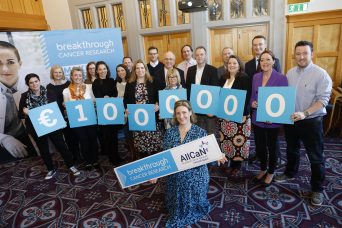
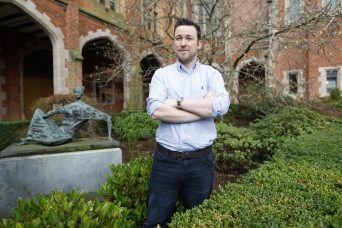
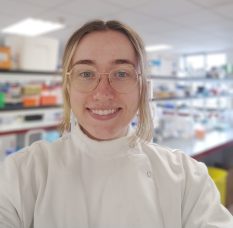
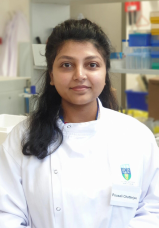





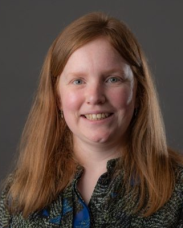

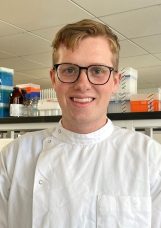


 Contact
Contact